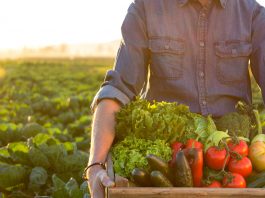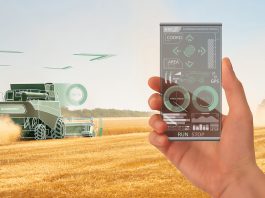An expert network of researchers is set to help the UK’s agri-food industry move one step closer to net zero.
A specialised research network has been created in order to help accomplish a net-zero agri-food industry in the UK. Agri-food encompasses agriculture, horticulture, as well as food and drink processing technologies.
With funding of £5m, the network will bring UK researchers together to explore effective ways to support the industry to reduce its greenhouse gas emissions and improve its overall environmental sustainability.
Led by the Engineering and Physical Sciences Research Council (EPSRC), UK Research and Innovation and four of its research councils have joined forces to provide the funding.
It is also set to help the UK’s agri-food industry to enhance biodiversity, maintain healthy ecosystems, nurture livelihoods, support healthy consumer habits, and minimise the environmental impacts of overseas trade.
“The agriculture food system produces nearly a quarter of the UK’s carbon emissions,” said Professor Dame Lynn Gladden, EPSRC Executive Chair. “By bringing together a multidisciplinary team and engaging a wide range of stakeholders, this project will explore how the journey from farm to fork could be made more sustainable. It will also help to meet the UK government’s strategy for achieving net zero by 2050.”
Achieving a net-zero agri-food industry
The network tasked with this challenge will be led by a team of four researchers: Dr Angelina Sanderson Bellamy from the University of West of England, Professor Tim Benton from the University of Leeds, Professor Sarah Bridle from the University of York and Professor Neil Ward, University of East Anglia.
It will also bring together researchers, industry leaders, government bodies and members of the public. According to the latest research, the UK’s agri-food industry is responsible for almost a quarter of the country’s greenhouse gas emissions. Given this significant contribution, it is one industry in which greenhouse gas emissions require addressing if the country is to meet its net zero goals by 2050.
However, although the industry contributes to and is affected by climate change, it can also be part of the solution.
Creating climate solutions
Dr Angelina Sanderson Bellamy, Associate Professor of Food Systems at the University of the West of England said: “This is a hugely important and exciting initiative, and we are thrilled to have the opportunity to build a network to move the agri-food system towards net zero. Climate change is increasingly recognised as the major threat for humanity. Extreme weather events, likely caused by climate change, are already decimating crop yields.
“The cost of the living crisis caused by the pandemic is driving up food prices, leading people to prioritise cheap food over sustainable food. And the war in Ukraine is wreaking havoc in a major global breadbasket, risking famines and food protectionism globally.
“We need to convene action to secure healthy and sustainably produced food for all. The scale and urgency of the challenge mean the old ways of establishing and settling upon research priorities will not do.”
Support from the wider community
The agri-food industry is more than farming alone and involves the whole journey from the farm to the plate and beyond, which includes manufacturing, retail, consumption and waste management. Any efforts to reduce the industry’s greenhouse gas emissions require expertise from across a range of research disciplines, including agriculture, biological sciences, natural sciences, and environmental sciences.
“We need to convene action to secure healthy and sustainably produced food for all,” concluded Dr Angelina Sanderson Bellamy. “The scale and urgency of the challenge mean the old ways of establishing and settling upon research priorities will not do. It is vital that researchers and stakeholders come together in a spirit of openness and collaboration, and with real urgency, to mobilise ideas and resources around advancing the transition.
We are really pleased to have been able to bring together such an extensive network team around a shared vision and plan of action. The 2020s is the decade of action. The three-year period of this project will be absolutely critical for the decade and jump-starting coordinated research and action.”





